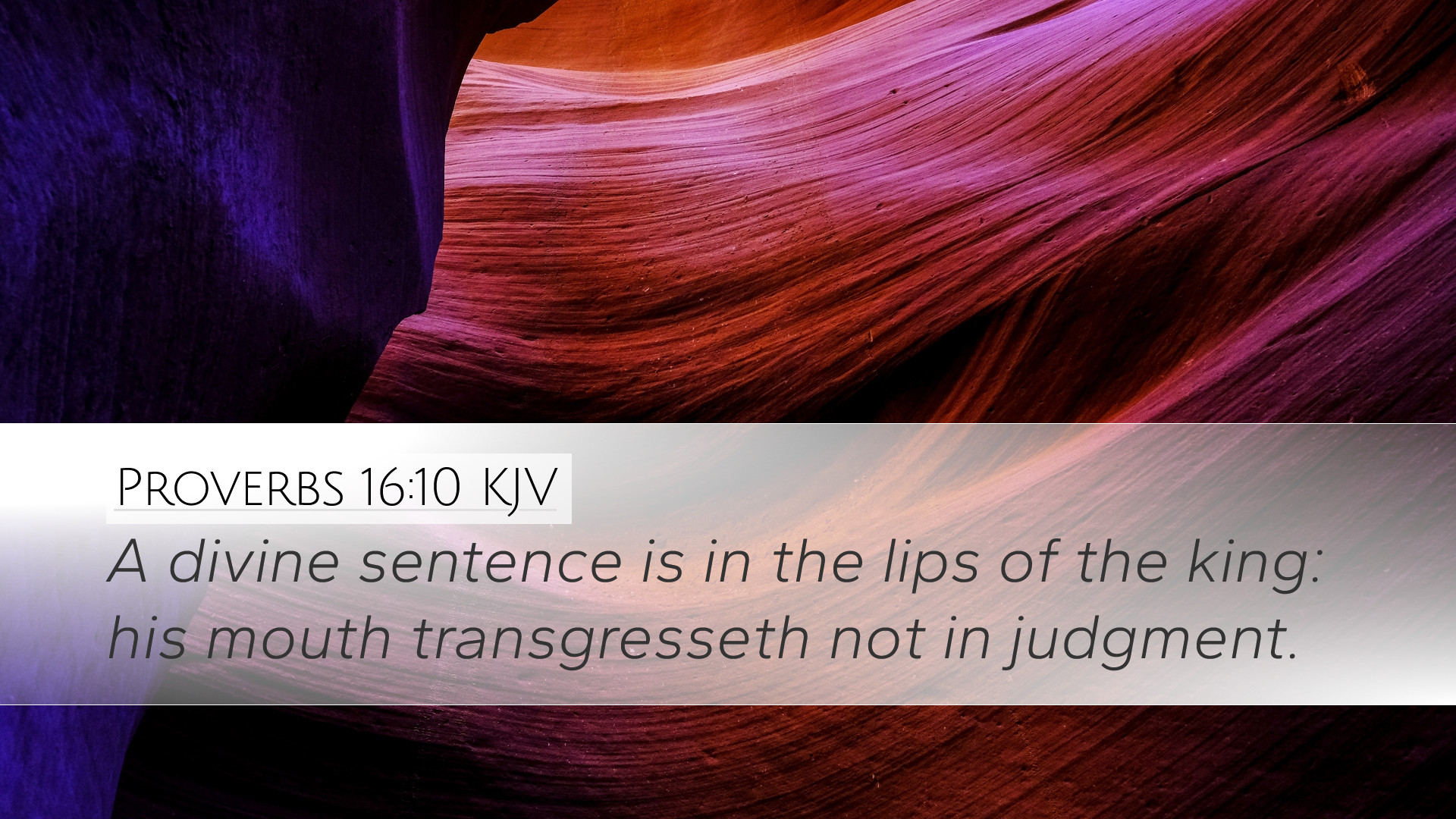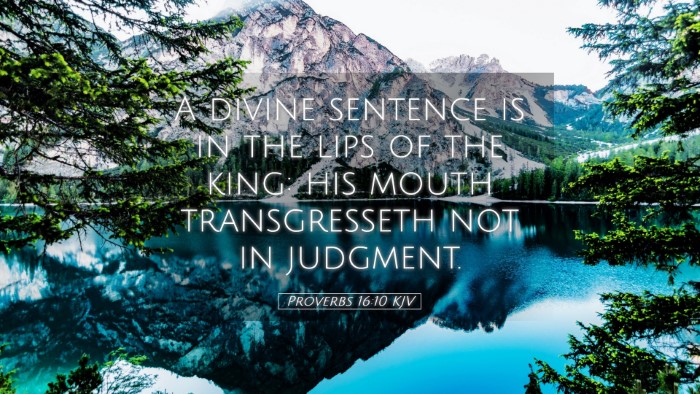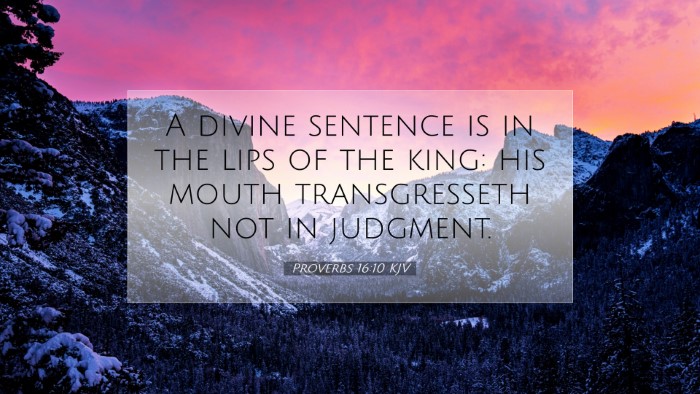Commentary on Proverbs 16:10
Text of Proverbs 16:10: "A divine sentence is in the lips of the king: his mouth transgresseth not in judgment."
Introduction
Proverbs 16:10 addresses the authority of the king and the divine wisdom that is meant to govern true leadership. This verse is critical not only in understanding the role of earthly rulers but also in reflecting on the ultimate sovereignty of God in the affairs of men.
The Divine Sentencing and the Role of the King
This verse begins with the assertion that "a divine sentence is in the lips of the king." Both Matthew Henry and Albert Barnes underscore the notion that rulers, especially those who govern righteously, are chosen by God to execute His justice and lead with divine wisdom.
-
Divine Authority: Henry notes that the "divine sentence" refers to the moral and ethical frameworks that should guide a king's decision-making, highlighting that true authority derives from God rather than mere human appointment.
-
Wisdom in Judgment: Barnes emphasizes that the king who speaks wisely does so under the guidance of divine wisdom, reflecting God's justice in their rulings.
The Integrity of Judgment
The latter part of this verse, "his mouth transgresseth not in judgment," implies that a true king will not speak carelessly or unjustly. Adam Clarke elaborates on this theme, suggesting that a ruler must adhere strictly to justice, acting as an agent of God's purpose.
-
Judicial Integrity: Clarke asserts that the righteous king's judgments are expected to align with God’s word, serving a stabilizing function in society and ensuring that laws reflect divine truth.
-
Revulsion of Injustice: Both Henry and Barnes agree on the importance of integrity in leadership, indicating that a king who strays from righteousness invites chaos and disorder.
The Application of Wisdom in Leadership
For pastors, students, and theologians, the insights derived from this verse serve as a poignant reminder of the characteristics that define godly leadership. It's vital to recognize the interconnectedness between divine guidance and the integrity of leaders in the church and society.
-
Pastoral Leadership: Ministers are called to mimic the king’s profile as a leader who speaks on behalf of divine truth, guiding their congregations with wisdom while upholding justice and compassion.
-
Theological Implications: This verse evokes the theological understanding that God sovereignly appoints individuals in positions of power, which calls for a recognition of His authority over human affairs.
The Broader Context of Proverbs
Understanding Proverbs 16:10 also requires acknowledging the broader context of the Book of Proverbs as a whole, which emphasizes the need for wisdom in all aspects of life.
-
Wisdom Literature: The wisdom literature serves to train individuals in discernment ([Proverbs 1:2-6](https://www.biblegateway.com)) and righteous living, encouraging leaders to seek divine insight in their governance.
-
Expectation of Responses: This verse urges those in power to be ever-mindful of the weight of their words and the moral imperatives that accompany leadership.
Concluding Thoughts
In summary, Proverbs 16:10 offers profound insights into the nature of leadership as shaped by divine authority. It stands as a call to both leaders and followers to seek alignment with God’s justice as expressed through integrity and wisdom. For pastors and theologians, it serves as a reminder that the application of divine judgment should be reflected in our communities and churches, acting as instruments of God's will on earth. The wisdom of this proverb is a timeless reflection on the responsibilities of all who are called to lead, urging them towards a path that honors divine principles.


